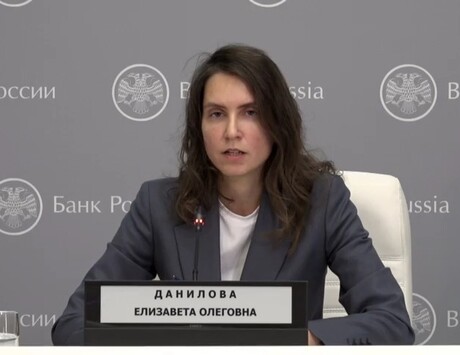Mikhail Gorbachev reveals the inspiration behind his charitable works, outlines the causes closest to his heart and tells how personal tragedy has spurred him to even greater efforts
On March 30, 2011 Mikhail Gorbachev will celebrate his 80th birthday at a gala concert in the Royal Albert Hall in London. The guest list will be adorned by the great and the good, from ex-presidents and prime ministers, pop stars and Hollywood icons, to publishing tycoons and high financiers.
Such lavish celebrations are an unusual outburst of mass publicity for the normally understated former leader of the Soviet Union and Nobel Peace prize winner. He has in the past preferred to stay well out of the limelight. For a man who chose to celebrate his 75th birthday in a small Moscow restaurant with only his close family as company, the question is: Why all the fanfare on this occasion? The answer: To promote his charitable causes.
Since leaving office after the collapse of the Soviet Union in 1991, Mr. Gorbachev has become one of the world's leading philanthropists. An instrumental force in helping to end the Cold War through perestroika and glasnost, Mr. Gorbachev was not a man to rest on his laurels. Far from it. Today his good works span the globe and his various foundations have raised an estimated $20 million since the early 1990s.
Organized by his granddaughters, Ksenia and Anastasia, next year's concert in London will be the culmination of a six-month fundraising effort by Mr. Gorbachev's philanthropic arm, The Gorbachev Foundation, to raise $8 million (£5 million) for children's cancer charities in the U.K. and Russia.
Mr. Gorbachev's journey from Soviet leader and father of perestroika to global philanthropist and all-round doyen of good causes began while he was still president. It was his late wife Raisa Gorbachev that opened his eyes to the potential he had to help others. Appalled by the conditions she had witnessed for child patients during a routine visit to Moscow's Russian Republican Hospital in the late 1980s, she resolved to do something about it. "She saw them helpless, came back in a shock and asked 'how can we help?'" Mr. Gorbachev says, speaking from a recent policy forum sponsored by his own foundation and the Bulgarian Slavyani Foundation in Sofia.
"Then she suggested that we both visit the hospital's leukemia department for children and women. She visited many times after that and wrote a book about it."
The proceeds of Mrs. Gorbachev's book, I Hope, went to good causes, but perhaps more importantly it set the couple off down the philanthropic road. "In socialist USSR, philanthropy was not encouraged as the state was supposed to provide for the people," Mr. Gorbachev says. "Very often it all starts from one's own personal experience."
Mrs. Gorbachev's experiences in Moscow's hospitals inspired a passion in both she and Mr. Gorbachev to help those children suffering from leukemia in Russia - a disease from which Mrs. Gorbachev was later to die in 1999. To this day, of all his good works, helping child leukemia victims is the one closest to Mr. Gorbachev's heart. "The Gorbachev Foundation donates to 19 orphanages in Russia to supply books and gifts and health checks, while every year we provide support for children suffering from the Chernobyl disaster by sending them to EU countries for treatment," Mr. Gorbachev says.
A high leukemia fatality rate in Russia is one of the tragic longer-term consequences of the explosion at the Chernobyl nuclear power station in 1986. The country's chronically underfunded health system was also a contributory factor, a harsh reality that led the Gorbachevs into action. "We got together and created the International Association of Hematologists and Raisa became its patron," he says. "We [also] brought friends [together] to start the first specialist [leukemia] institute in Moscow, raising $8 million to start with and eventually, after a few requests, we got an extra $2 million from the Russian government, so the new specialist hospital in Moscow started with $10 million."
The Gorbachevs continued their close involvement with the hospital and with their backing it became the first medical institution in Russia to perform bone marrow transplants. "When we started in the early 1990s, leukemia patients' survival rate was only 10%, but towards the end of the decade, in 1999, the rate was up to 70% . . . and this was the time when Raisa died," Mr. Gorbachev says.
The death of his beloved wife from the very cancer she had done so much to help alleviate in others was a bitter blow for Mr. Gorbachev. He tells the Wall Street Journal that she died as a result of the "suffering she had taken" when visiting children sick of leukemia. However, such personal tragedy acted only to further strengthen Mr. Gorbachev's resolve to do more to help the victims of cancer.
He established the Raisa Gorbachev Foundation in 2006 (an international, non-governmental organization dedicated to the control of child cancer), which has continued his wife's work and raised in excess of $8.5 million towards cancer relief. One of its achievements was the construction of a new hospital in St. Petersburg for child cancer patients. "To commemorate Raisa, the new hospital in St. Petersburg was later named the Raisa Gorbachev Children's Institute of Transplantology and Haematology," Mr. Gorbachev says. "I was surprised by the numbers we got when we asked friends for donations to support the new center. Fred Matser, [a Dutch] humanitarian and a businessman, gave as much as $500,000, so that response gave us strength and confidence in raising funds and encouraged our philanthropy work."
Mr. Gorbachev adds that another enthusiastic benefactor to the St. Petersburg project was Alexander Lebedev, the high-profile Russian businessman and owner of the U.K.'s Evening Standard and Independent newspaper titles. "[Mr. Lebedev] gave $2 million to support it, which energized donations. His son Evgeny Lebedev manages the charitable trust behind it," Mr. Gorbachev says.
The Lebedev family have also been instrumental in organizing the forthcoming 80th birthday celebrations for Mr. Gorbachev. "I am a world known person and [Mr.] Lebedev has become such a person too, he is helping me get guests and publicity in London," he says.
Mr. Gorbachev's party at the Royal Albert Hall will be a gala affair. Among the guests will be former U.K. Prime Minister, John Major, former German Chancellor, Gehard Schroder, and Arnold Schwarzenegger, former Governor of California. According to 'Gorby80', the organization set up solely to manage the party, the evening will be split into seven phases, all of which mark important milestones in his life.
Mr. Lebedev's involvement with the Gorbachev Foundation is one of a range of the Russian billionaire's charitable activities.
However, according to Mr. Gorbachev, Russia's wealthy new elite could be doing more to follow Mr. Lebedev's example. "When we started the philanthropy process in Russia in the 1990s, the state was not poor but the richer people were not involved. Now it is much better: Russia is rich and can do more philanthropy work, as it is done in the rest of Europe and the U.S.," he says.
Russia's purchasing power per capita [see chart] might have increased, but this has not necessarily been mirrored by an increase in charitable donations.
However, Mr. Gorbachev is optimistic for the future. "The Gorbachev Foundation is just one foundation. The amazing thing about charity work is that people can help by contributing symbolically. Everybody can do more, especially with small donations." he says.



